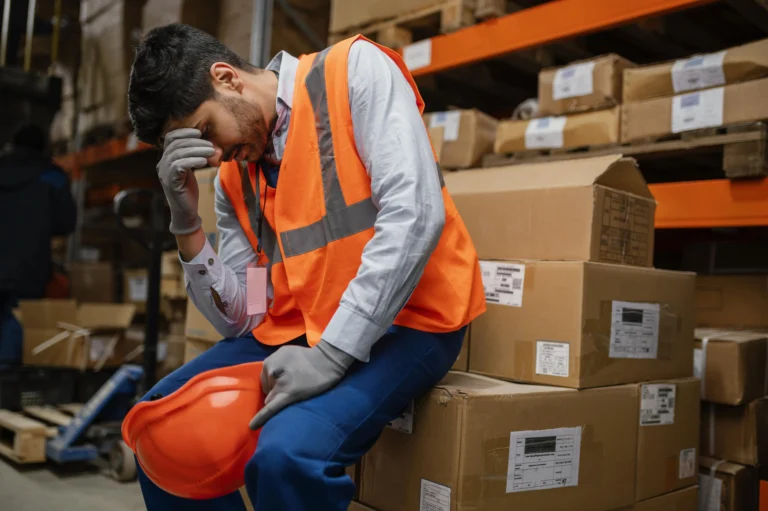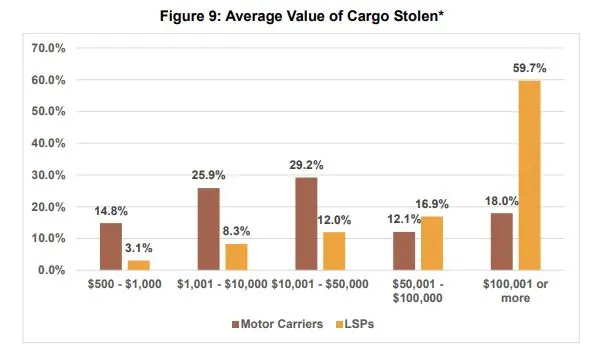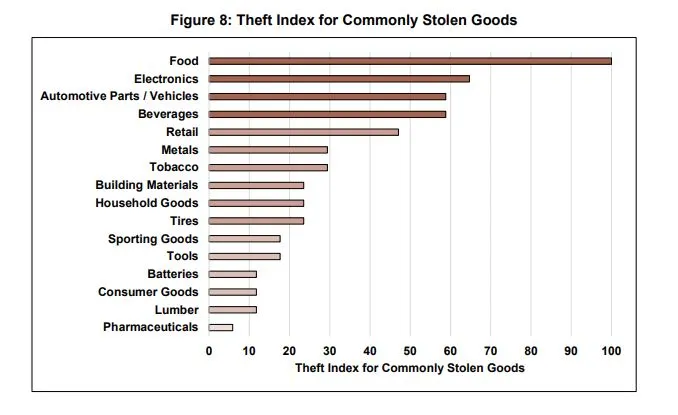Cargo theft has been one of the most persistent issues facing the freight transportation industry so far in 2025.
Cargo theft has been one of the most persistent issues facing the freight transportation industry so far in 2025. Companies have become one of the most common targets for criminals, making it increasingly difficult to prepare for future attacks. A recent report published by the American Transportation Research Institute (ATRI) revealed that the total cost of cargo theft in the industry has reached $18 million per day in direct and indirect losses.
According to the report, 74% of stolen goods are never recovered, and are thus considered total losses. ATRI analyzed data on cargo theft from carriers, logistics service providers, insurers, and other industry stakeholders to gain a broader perspective on what this crisis truly means for freight transportation.
Cargo theft costs industry over $18 million per day
Cargo theft has become a routine cost for trucking companies, said Ben Banks, president of TCW Inc. Consumers ultimately bear the cost, while the industry suffers significantly. Therefore, immediate action is essential to combat this growing crisis. The ATRI report aims to support the industry by providing accurate, quantifiable data that can help companies implement effective solutions to protect their goods and workers.
The findings of the report show that annual cargo theft costs the sector approximately $6.6 billion, which translates to more than $18 million per day. Additionally, it was reported that the average annual losses due to theft are around $520,000 per carrier, and about $1.84 million per logistics service provider.
Researchers conducted numerous interviews with industry participants, including carriers who had experienced cargo losses, in order to calculate the average figures that threaten the freight industry today.
Cargo theft trends
The report also examined how and where cargo theft occurs, along with prevention strategies, the importance of building strong partnerships with law enforcement, and the role of insurance in risk management. Among its findings, the most commonly stolen goods are:
- Food
- Electronics
- Auto parts and vehicles
- Beverages
- Clothing
On the other hand, these thefts are more likely to occur near major transportation and logistics hubs in large cities, where vast amounts of cargo move through interstate corridors and law enforcement resources are often stretched thin. The most affected states include:
- California
- Texas
- Illinois
- Tennessee
The cities that have recently seen a rise in cargo theft include: Chicago, Memphis, Houston, Miami, Savannah, and Newark.
ATRI recommendations
As security measures, ATRI advises carriers to safeguard their facilities and only grant access to trusted and properly identified individuals in order to prevent theft at terminals, as 24% of thefts occur at carrier terminals.
The report also highlights the need for state-level legislation to address this issue, while also proposing comprehensive tools to ensure the industry and all stakeholders have the necessary resources to enforce the law effectively.

The best roadside attractions for truckers in the U.S.
America’s highways hide unique places that break up the routine, don’t hesitate to check out these roadside attractions along the way. The road is much

The trucker style: comfort, function, and identity
Truckers’ style is much more than workwear; it’s an identity. These are the most commonly worn garments among truckers. Truckers’ style is much more than

Chaos on Highway 61: Viral Wrong-Way Truck Video Reignites the CDL Debate
An 80-ton tractor-trailer traveling miles in the wrong direction on Missouri’s Highway 61 has reignited a nationwide debate over Commercial Driver’s License (CDL) standards, training

How technology affects driver retention
Friend or foe? 52% of drivers say technology directly influences their decision to stay with or leave a fleet. Fleet telematics company Platform Science published

Dalilah Law seeks to remove non-english speaking commercial drivers
President Donald Trump proposed the “Dalilah Law,” an initiative aimed at prohibiting undocumented immigrants from obtaining commercial driver’s licenses. On February 24, President Donald Trump

FORMULA 1 and the AI That Could Transform Transportation in the U.S.
The artificial intelligence system that Formula 1 implemented to monitor every car on every turn is opening the door to new applications in trucking, logistics,
All content and original artwork, unless otherwise noted, is protected by copyright. Saint George uses certain images under license from various licensing vendors for this purpose. Any unauthorized commercial reproduction or distribution of copyrighted materials is prohibited.



